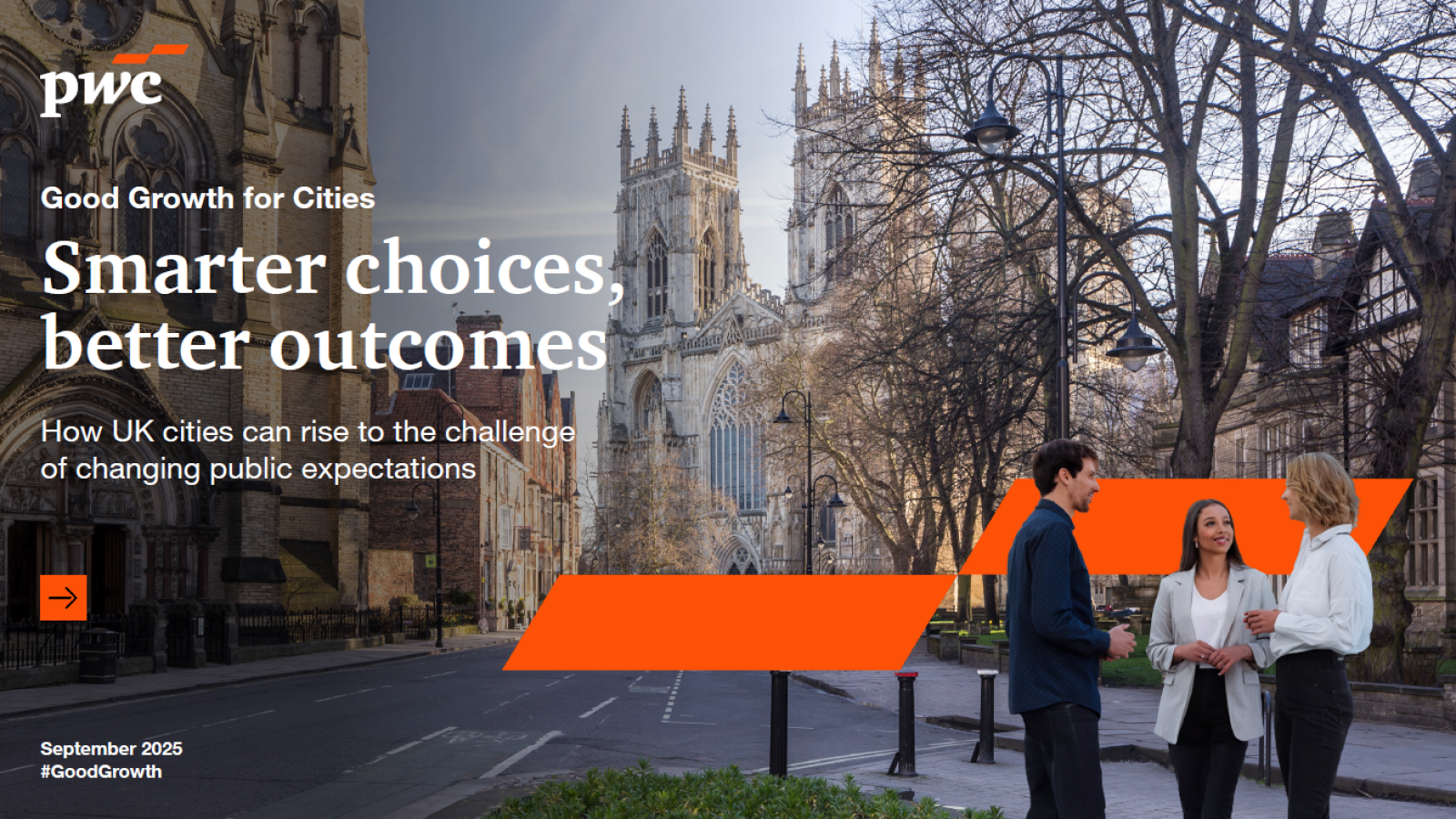Scottish cities have performed well above the national average in the Demos-PwC Good Growth for Cities Index (‘the Index’) this year.
The highest performing city in Scotland is Edinburgh, rising by seven places to rank second overall. Aberdeen is the most improved city, moving from 37th place in last year’s Index to 12th this year - an improvement of 25 places.
Glasgow comes out as the third most improved city, moving into 18th place, a jump of 13 places.
The Index ranks 50 of the UK’s largest cities, excluding London, based on both the public’s assessment and the actual performance of 12 economic measures. These measures - selected based on what the public view as key to economic success - include jobs, health, income, safety and skills, as well as work-life balance, housing, transport, income equality, high street and shops, environment and business start-ups.
Edinburgh scored highly across high streets, skills and jobs, which are key indicators of prosperity that the public increasingly values. The city has seen improvements in job opportunities, higher youth (16-24) educational attainment and more equal income distribution compared to last year’s results. However, if on a like for like basis Edinburgh would have been one of the larger fallers with the results in income, income distribution and life expectancy being the largest faller.
Glasgow, by comparison, did well across skills, safety and work-life balance.
Aberdeen has performed well on both youth and adult skills, ranking third and seventh across the UK respectively and performed in line with the average for work-life balance. The shift in priorities towards these metrics has meant that Aberdeen has had the highest rise in the index. The prioritisation of income is below the UK average, but income distribution is among the highest priorities.

Performance across the 12 measures is quite consistent for all three Scottish cities, with all of them above the UK average for house price to earnings ratios, skills and high streets. Aberdeen diverges from Glasgow and Edinburgh for owner occupation and transport, with both scoring lower in Aberdeen, but the cities score higher than Aberdeen for work-life balance.
Despite the positive results for Scotland, and in particular Aberdeen and Glasgow’s significant rise in the Index, our report reveals that it is unlikely that this shift in priorities reflects a renewed sense of optimism around household finances. The underlying data is for the period prior to the energy price rises and recent inflation pressures that has reduced growth in the UK.
The ongoing financial pressures will still push people to prioritise and focus on what will most improve their quality of life. For most cities, meeting the public’s expectations continues to be a significant challenge and many households remain under financial strain.
While the UK economy saw a short-term uplift in early 2025, it was driven by temporary activity and is not expected to last. UK growth is likely to remain subdued through the rest of the year with modest improvement forecast in 2026. Although Scotland is forecast to see the highest regional economic growth over the next two years compared to the UK average.
Jason Morris, Scotland Market Senior Partner at PwC, said: “I’m pleased to see Scotland’s strong performance this year, and it is interesting to see that public priorities are beginning to shift towards factors that are more tangible and local. Our Good Growth for Cities Index offers a framework that allows cities to adapt and align their strategies to reflect public priorities, fostering economic success and community wellbeing.
“Recent years have seen challenges for households and businesses across Scotland and it’s important to continue addressing areas that the public place the most value in, such as income, income distribution and safety.”
Richard Spilsbury, Edinburgh Market Senior Partner, said: “Edinburgh ranks second in this year’s Index, driven by the change in priorities and changes in public perceptions of prosperity indicators. The city performed well in areas such as high streets and skills, which are increasingly seen as important priorities. However, Edinburgh continues to experience below home ownership rates, highlighting ongoing housing affordability challenges in the city, as well as a relatively poor performance in new business and health.”
Stewart Wilson, Government Lead Scotland, said: “Scotland's three largest cities have made strong progress in important areas, reflecting a solid post-pandemic recovery from 2021–2023. The country is also expected to see above-average growth over the next two years. However, all three cities lag behind the UK average in health, highlighting the need for coordinated public services focused on improving health outcomes and reducing inequality.”